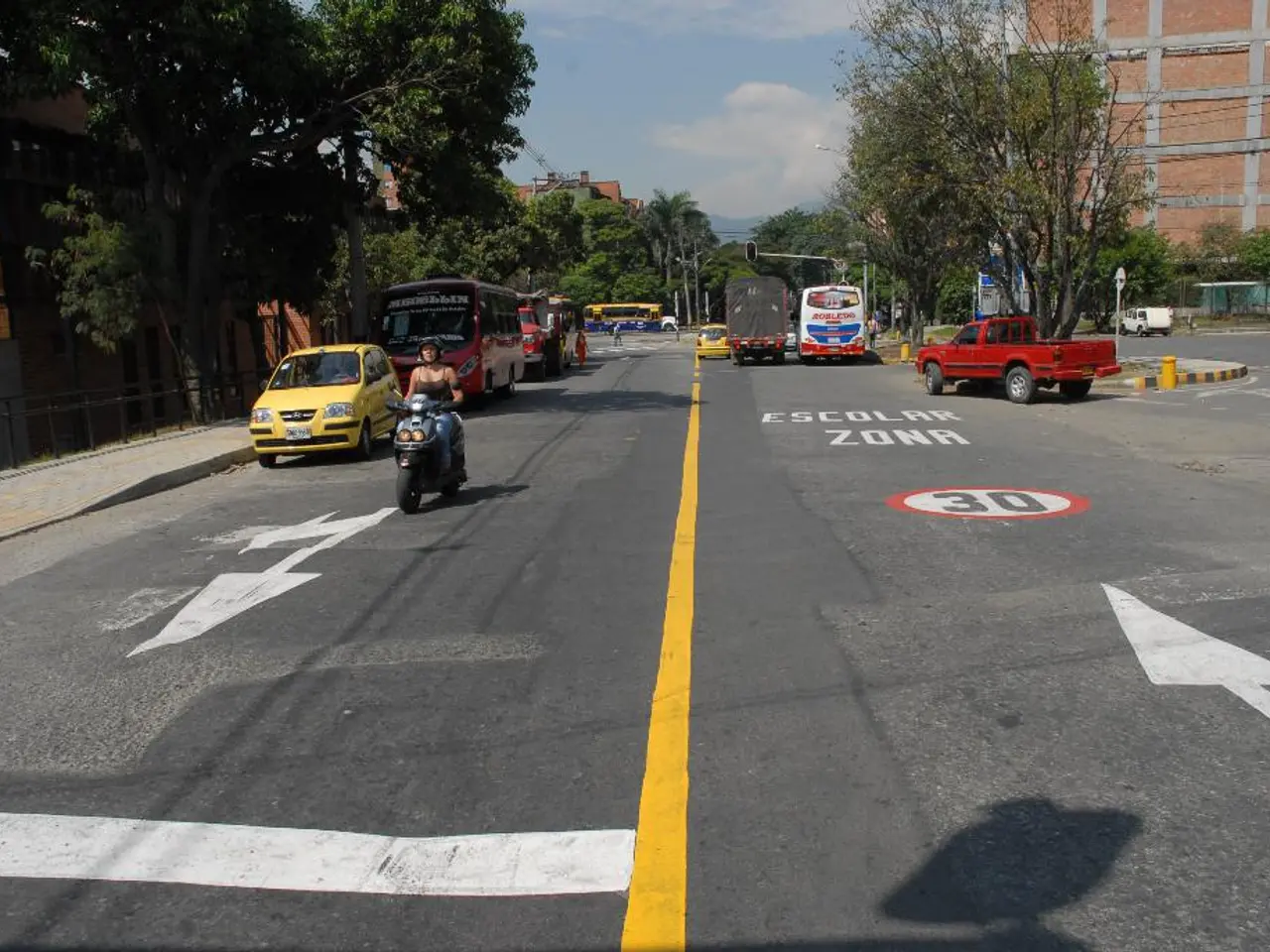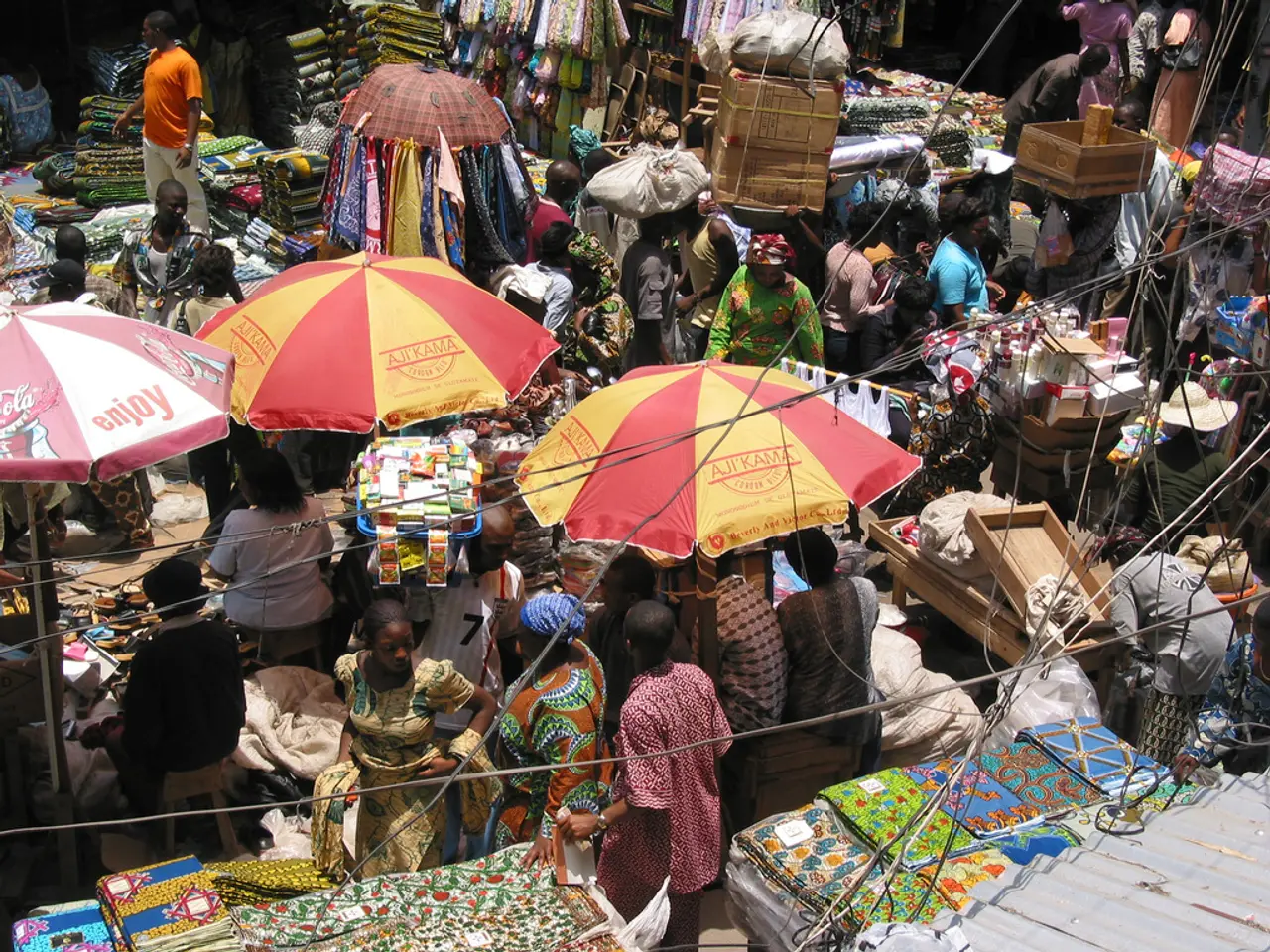AmBisyon 2040, according to DEPDev head Balisacan, might no longer be achievable
The Philippines is targeting an economic growth of around 6% in 2025, as outlined in the updated Philippine Development Plan. This comes within a government goal range of 5.5-6.5%, with some forecasts specifically projecting around 6% growth this year despite global uncertainties and a weak labor market.
This ambitious target is part of the government's broader aim to achieve upper-middle-income status and bolster the middle class by 2040. To reach this goal, the government has articulated a comprehensive fiscal and development strategy that addresses the aftermath of the COVID-19 pandemic and external economic pressures.
The pandemic has had a significant impact on the Philippine economy, causing a three-year loss of growth momentum and resulting in a "weaker labor market" and slower-than-pre-COVID consumer spending recovery. However, the government is leveraging medium-term fiscal frameworks and macroeconomic policy planning to mitigate these impacts, aiming to sustainably boost private consumption, government revenues, and investments over time.
To achieve middle-class status by 2040, the government has set socio-economic goals such as reducing poverty to a single-digit rate by 2028, lowering government deficit and debt ratios, and increasing gross national income (GNI) per capita to at least USD 4,256 by 2024. These goals are outlined in the Medium-Term Fiscal Strategy aligned with the Philippine Development Plan 2023-2028, which promotes fiscal discipline and transparent budgeting aimed at sustained economic growth and poverty reduction.
The COVID-19 pandemic has also underscored the need for resilience against shocks and inclusive growth to narrow income disparities and raise the middle class. To this end, the government is focusing on investing aggressively in human capital by upskilling and reskilling the workforce, particularly the young population.
To attract more capital to Philippine industries, the government is addressing investors' concerns by improving infrastructure, making regulatory improvements, and enhancing human capital. Secretary Arsenio Balisacan, the head of the Department of Economy, Planning, and Development (DEPDev), has emphasised the importance of these factors in helping the economy grow sustainably without overheating.
The slowdown in household spending growth in the fourth quarter of 2024 due to consecutive typhoons contributed to the Marcos administration missing its growth target. However, household spending growth rebounded in the first quarter of 2025, growing 5.3%.
Despite the challenges, the Philippines is not alone in pursuing ambitious growth targets. Countries like Vietnam and Indonesia are also striving for similar goals. To remain competitive, it is crucial for the Philippines to continue focusing on robust industries, stronger agricultural performance, and a more resilient economy.
However, Balisacan believes that attaining middle-class status is still possible by 2040 if the economy grows faster than its current rate. He also emphasises that for this goal to be achieved, growth must be inclusive to sustain faster income growth among lower-income groups. The goal of the Philippines becoming a high-income society where nobody is poor by 2040, as outlined in AmBisyon Natin 2040, may no longer be feasible, but with the right strategies and investments, the Philippines can still strive towards a brighter, more prosperous future.
- To reach the government's aim of achieving upper-middle-income status by 2040, it's crucial to focus on business strategies that foster private investments, such as improving infrastructure, making regulatory improvements, and upskilling the workforce.
- Achieving inclusive finance is essential to attaining middle-class status by 2040, as growth must be distributed among lower-income groups to ensure sustainable faster income growth and a brighter, more prosperous future, as outlined in AmBisyon Natin 2040.




